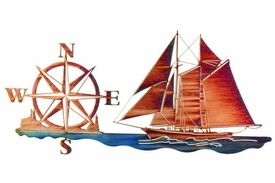The vastness of our oceans holds mysteries and wonders beyond imagination, but it also presents challenges and risks that require careful navigation. In the realm of maritime operations, conducting thorough marine surveys is paramount for ensuring safety, environmental protection, and efficient resource utilization. Let’s dive into why these surveys are indispensable.
1. Safety First:
Marine surveys play a crucial role in ensuring the safety of vessels, crew, and cargo. By assessing factors like water depth, seabed conditions, and potential hazards such as wrecks or underwater structures, surveys help chart safe passages for navigation. This information is vital for preventing collisions, groundings, and other accidents, safeguarding both human lives and valuable marine assets.
2. Environmental Stewardship:
Our oceans are fragile ecosystems teeming with diverse life forms. Marine surveys contribute to environmental protection by monitoring water quality, mapping habitats, and identifying sensitive areas that require conservation efforts. By understanding the ecological impact of human activities such as shipping, fishing, and offshore development, surveys enable informed decision-making aimed at minimizing harm to marine biodiversity and preserving the delicate balance of marine ecosystems.
3. Resource Management:
From offshore oil and gas exploration to renewable energy projects like wind farms, marine surveys provide essential data for the sustainable management of marine resources. By assessing seabed geology, bathymetry, and oceanographic conditions, surveys inform the location, design, and operation of marine infrastructure projects. This ensures optimal utilization of resources while minimizing environmental risks and maximizing economic benefits.
4. Legal and Regulatory Compliance:
In an increasingly complex regulatory landscape, marine surveys help stakeholders comply with international conventions, national laws, and industry standards. Whether it’s conducting pre-construction assessments for coastal developments or verifying compliance with maritime safety regulations, surveys provide the evidence needed to meet legal requirements and obtain necessary permits. This promotes transparency, accountability, and responsible governance of marine activities.
5. Advancing Technology:
With advancements in technology, marine surveys are becoming more precise, efficient, and cost-effective. Innovations such as remote sensing, autonomous underwater vehicles (AUVs), and high-resolution imaging techniques are revolutionizing the way we collect and analyze marine data. These technological developments not only improve the accuracy of survey results but also expand our understanding of the ocean’s depths, unlocking new opportunities for scientific research and exploration.
In conclusion, marine surveys are indispensable tools for navigating the complexities of our oceans. By prioritizing safety, environmental stewardship, resource management, and regulatory compliance, these surveys pave the way for sustainable maritime activities that balance human needs with the preservation of marine ecosystems. As stewards of the seas, let us embrace the importance of marine surveys in charting

Hi, this is a comment.
To get started with moderating, editing, and deleting comments, please visit the Comments screen in the dashboard.
Commenter avatars come from Gravatar.